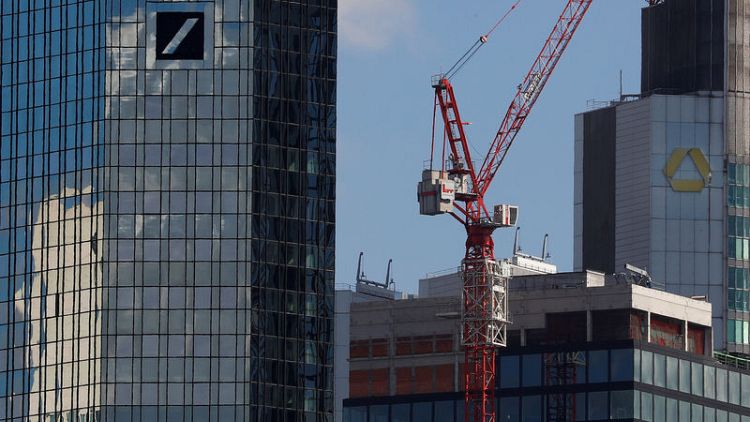By John O'Donnell and Michael Nienaber
BERLIN (Reuters) - A political rift has emerged in Berlin over whether Germany should put its financial muscle behind a merger of Deutsche Bank and Commerzbank, politicians and officials said, complicating a bid to create Europe’s third-largest bank and fund it.
Germany's two top banks have struggled to recover since the financial crisis and government officials, led by Finance Minister Olaf Scholz, are pushing for a merger to create a national banking champion and end questions over their future.
But a dispute is unfolding between the two political parties who govern Germany in coalition, a row that could reduce political momentum for a deal and derail any future agreement on whether or how Berlin should financially underpin a merged group.
One senior German official said that Scholz, a Social Democrat, had "gone it alone" in pushing for the deal without first securing the backing of Christian Democrats (CDU) in the coalition.
That official, who asked not to be named, said some Christian Democrats opposed Scholz's drive because it could involve the state giving a guarantee on funding or contributing to a capital increase for a merged bank. That would mean Berlin, which already has a 15 percent stake in Commerzbank after a crisis-era bailout, would be on the hook again.
Scholz was the first to publicly reveal the merger talks earlier this month but he has since sought to distance himself from the process, insisting it is up to the companies to decide.
A spokesman said Scholz had "not voiced any position on the merger talks", declining to comment on possible future government action.
But his stance and the idea of merging the banks have prompted criticism.
"The taxpayer cannot be made liable," Eckhardt Rehberg, a member of Chancellor Angela Merkel's conservative Christian Democrats bloc, told Reuters. "I'm calling on finance minister Scholz to hold back."
Within the Social Democrat (SPD) party, attempting to reposition itself closer to regular working Germans as its support dwindles, some oppose a tie-up that trade unions fear will result in the loss of tens of thousands of jobs.
"It is not clear for me how putting two sick banks together will result in a healthy one," Cansel Kiziltepe, a Social Democrat lawmaker, told Scholz in a closed-door meeting this week, she said.
50:50
Through its stake in Commerzbank, the German government would become a top shareholder in a merged group, playing a central role in any fusion.
Berlin, which pushed the merger talks in the first place, could pull the plug if it believes a deal would be politically unpalatable.
Germany's continued support is important because it could be called on to contribute to a capital increase for a combined bank.
The bank may need more funds because a tie-up could legally trigger an adjustment in the value of Italian government bonds owned by Commerzbank, to reflect their depleted worth, a second German official has said.
With Berlin as a shareholder, the merged bank would be seen as having an implicit government guarantee of its creditworthiness, cutting its cost of funding.
However, in order for Germany to row in behind Deutsche Bank, there must be political agreement among the two parties, who are at loggerheads on a range of issues.
Gains by the far-left and far-right in Germany have undermined its traditionally consensus-driven politics, with the SPD and CDU now trying to establish a clear distinction between each other.
Regional elections in the coming months could heighten tensions in government further or even trigger a change of parties in charge, further complicating any future state support.
"The finance minister can not give political presents to promote a merger," Otto Fricke, a parliamentarian from the pro-business FDP party that could become a junior partner in a future coalition government, told Reuters.
Merkel, who will have the final say in Berlin on whether the government should openly support a merger, has kept her cards close to the chest.
Her chief of staff has hinted at one potential hurdle, describing the prospect of thousands of job cuts in a recent interview as difficult.
Harald Christ, a director at the Wirtschaftsforum business lobby group, which has close links to the SPD, said he saw the chances of a merger at "50:50."
(Additional reporting by Balazs Koranyi and Tom Sims in Frankfurt, Holger Hanson and Andreas Rinke in Berlin; writing By John O'Donnell. Editing by Carmel Crimmins)



